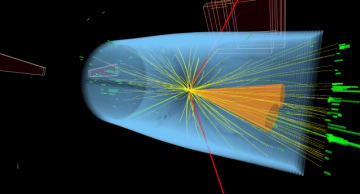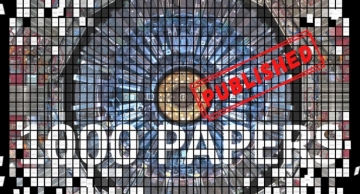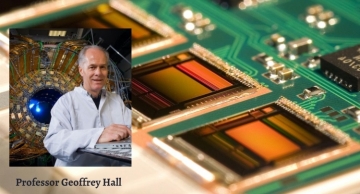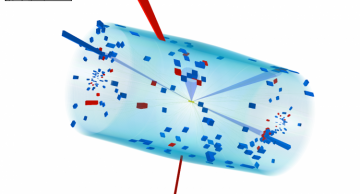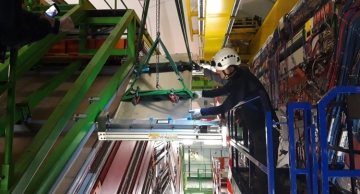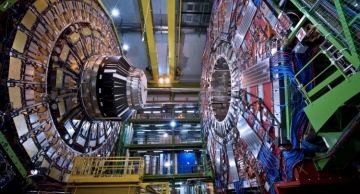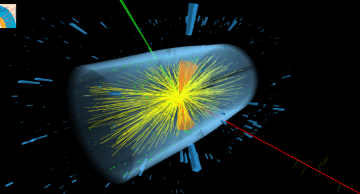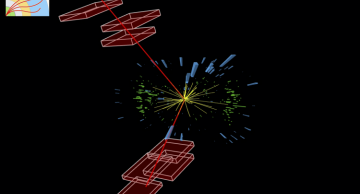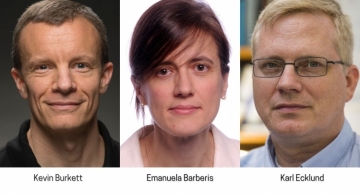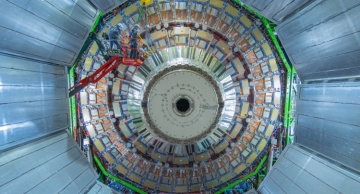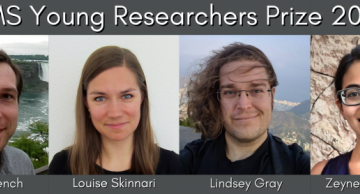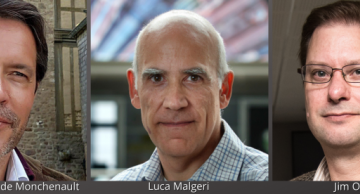What if new particles modify the behaviour of existing particles, but by only a little bit? In a new result, CMS physicists search for new physics using a technique called Effective Field Theory to study the top quark in a "toy universe".…
News
|
losmith |
Collaboration
On November 24th, the CMS collaboration at CERN's Large Hadron Collider announced the publication of the 1000th paper in a peer-review journal, a truly exceptional achievement for a single Experiment.
A thousand published papers, more than 100 per…
|
losmith |
Collaboration
Professor Geoffrey Hall from Imperial London College has won the James Chadwick Medal and Prize. This award is granted by the Institute of Physics (IoP) for distinguished contributions in particle physics.
Geoffrey has devoted much of his…
|
fblekman |
Physics
Eight years ago in 2012, at the largest International Conference on High Energy Physics, the discovery of a new particle carefully coined as Higgs boson-like was announced by the ATLAS and CMS Collaborations. They had seen an excess in data over…
|
losmith |
Collaboration
CMS has just finished wrapping the barrel with a new layer which is not a new detector but a brand new protection system aimed to keep the outer barrel muon chambers shielded from background radiation present in the experimental cavern during…
|
losmith |
Collaboration
When visitors at CMS enter the cavern and see the detector in all its beauty, they often ask how it has been possible to fit everything together and to make it work as a singular instrument. When the detector is in an open configuration, typically…
|
fblekman |
Physics
A new result by the CMS collaboration accepted by the journal Physical Review Letters demonstrates for the first time that top quarks are produced in nucleus-nucleus collisions. At the same time, this also demonstrates the capability of the CMS…
|
fblekman |
Physics
It is the dream of all particle physicists to find a new particle or to reveal a new fundamental force. In 2012 this dream came true when the big CERN experiments ATLAS and CMS discovered the Higgs particle, predicted by theorists decades ago. Other…
|
losmith |
Collaboration
Congratulations to three scientists and CMS members, Emanuela Barberis, Kevin Burkett and Karl M. Ecklund who have been elected as American Physical Society (APS) Fellows in 2020 for their exceptional contributions to the field of physics.…
|
losmith |
Detector
Despite the rather challenging circumstances of the COVID-19 pandemic, the CMS GEM (Gas Electron Multiplier) team has been working against all odds to complete the installation of the very first GEM station (GE1/1) in CMS. With the completion of one…
|
losmith |
Collaboration
Congratulations to the winners of the CMS Young Researchers Prize 2020! The prize is intended to recognize outstanding achievements of young members of CMS. It is awarded annually to at least three members who have made a very significant and…
|
losmith |
Collaboration
The CMS experiment has a new leadership team. Starting from 1 September 2020 until August 2022, the new spokesperson Luca Malgeri and the two deputies Gautier Hamel de Monchenault and Jim Olsen will lead more than 5000 people for the CMS…

